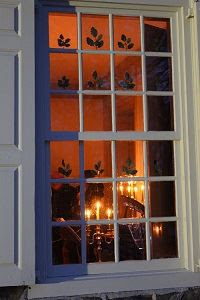When I watched "Stripped for Parts: American Journalism on the Brink" at the free public screening in Pottstown on April 8, I was seeing it for the fourth time.
It is unquestionably a good film, and it has won many awards. If you come across another opportunity to see it, I can't recommend it strongly enough. But then, I do love a good documentary.
However, given that the film's subject is about the willful destruction of something I love, it can get a little hard to watch over and over again. Just ask Rick Goldsmith, the director of the film, who has taken it to so many screenings, he does not show up to speak until the film is over.
Specifically, the film is about how Alden Global Capital, which owns The Mercury, began buying up newspapers across the country a few years ago not to run or improve them, but, as the title suggests, to strip them of their assets, and their value and run them into the ground until there is nothing left to feed on.
The screening I helped arrange would not have happened without the graciousness of The Hill's head of school, Kathleen Devaney, who agreed to host the showing, and The Newspaper Guild/CWA Local 38010 out of Philadelphia, of which I am a member. The Guild covered Goldsmith's travel and lodging expenses at The Three Daughters Bed & Breakfast on High Street.
 |
The post-film discussion panel fearuted, from left, myself, film director Rick Goldsmith, Bill Ross from the News Guild and former Mercury Sports Editor Austin Hertzog. |
As I tried to convey when I fumbled my way through the introduction to the screening, at its essence, the film is about loss.
The loss is not just mine, but the greater Pottstown community's loss, and the country's.
As the last local reporter at The Mercury, I have lost support, working in a newsroom with colleagues and resources to be able to do this vital job as well as it needs to be done.
The greater Pottstown community has lost coverage of important local news, insight into why things are happening when they are happening, and that ineffable connection that comes from everyone working off the same set of facts.
And, as Professor Peggy Abernathy makes clear in the film, the hollowing out of local news means the nation is losing an engaged public. The loss of local news means people vote less, volunteer less, run for office less and it means a growth in corruption.
But there are glimmers of hope to be found at the film's end. There we learn about the journalists who left, or were let go, from The Denver Post, who formed the non-profit news site, The Colorado Sun, to see if there is another way to provide this vital service.
And it is a public service, as Goldsmith said during the panel discussion that followed the film, like public schools, or the fire or police departments, none of which are required to generate a profit to preserve their continued existence. (In fact, police departments are usually the most expensive part of any municipal budget.)
 |
| The April 16 edition of Voices of Monterey Bay. |
Hopefully, each community will find a way to replace what is being lost. Otherwise, it will be replaced by something that does not see local news as a public service, but as a way to mislead voters.
Called "Pink Slime" after the "it's almost-ground-beef" scandal when it was found in school lunches across the country, these replacement news sites look like local news, but are actually owned by partisans pushing misinformation.
"According to a report from NewsGuard, a company that aims to counter misinformation by studying and rating news websites, the websites are so prolific that 'the odds are now better than 50-50 that if you see a news website purporting to cover local news, it's fake,'" The Guardian reported last June.
 |
We couldn't let Rick goldsmith's visit to Pottstown pass without paying a pilgrimage to old Mercury building. |
Ryan Johnston, assistant principal at Pottstown High School, had said something on this subject to Rick and I while we were waiting for the students to file in to the auditorium and it was a bit of an epiphany for me.
"For these kids, 9-11 is history. It happened before they were born."
That set me on my heels, and I thought about the news environment in which they have been raised. Forget Walter Cronkite, they never even had the experience of only three TV channels and news anchors being "the most trusted man in America."
Instead they grew up with and endless stream of possible information sources, most of them more interested in being entertaining and attracting clicks and likes than with being trustworthy.
 |
Rick Goldsmith speaks with Hill School students on April 8, prior to the screening of his film. |
Many happen upon it in their feeds on their phones and do not necessarily differentiate between real news and chatter.
This is not their fault.
We cannot condemn them for not doing something no one ever taught them to do. For many my age or a little younger, we grew up with news in the house. Our parents got the paper, or watched the 6 O'Clock news and it is second nature to us.
We are the ones who invented smartphones, and social media without setting any kind of guidelines for its use or much thought to the impact it might have. Frankly, we did not know ourselves.
But that only makes the threat of "Pink Slime" all the more insidious as this generation moves up the aging ladder into adult life and become the people who vote and run everything.
This is one of several reasons I am passionate about informing people about the importance of local news and the need to preserve its function.
 |
More than 100 people showed up April 8 for the free screening of the documentary "Stripped for Parts: American Journalism on the Brink." |
It is also worth observing that for many young people, their first real connection to local news is through athletics. When the local sports reporter interviews them about their performance that day, or their team's chances in the big game, that is often their first experience with local news.
And often, it's a good one. We should capitalize on that.
To drive the point home, as the evening wound down, Austin told me someone came up to him and said that Austin had interviewed him years ago, and then he produced the clipping of the story.
Youth sports is also one of those crucial common ground areas where adults can put aside their political labels. As I said Tuesday night, the MAGA father and Libtard father can both agree on one thing, they want to root for their kids' team.
So I've mentioned the panel discussion and question period several times. All of this, including the film itself, was captured by our friends at PCTV and is being aired this week around 9 p.m. on channels 22, 28 and 98.
Rick is still trying to get his movie picked up by HBO, PBS or even Netflix, so he asked PCTV President Gus Tellis to refrain from showing the movie on his YouTube channel, for obvious reasons.
However, I have helpfully shot full videos of both the panel discussion as well as the question period, which I have posted on my YouTube channel.
But as you have no doubt already noticed by now, I have embedded them here for easy viewing.
Please forgive the shakiness and questionable audio, I shot it from my TV sitting on my couch accompanied by two very curious cats.
Here's hoping you get something out of all this -- if nothing else, a better understanding of the challenges local news faces -- and perhaps together we can come up with a way to save it.

























